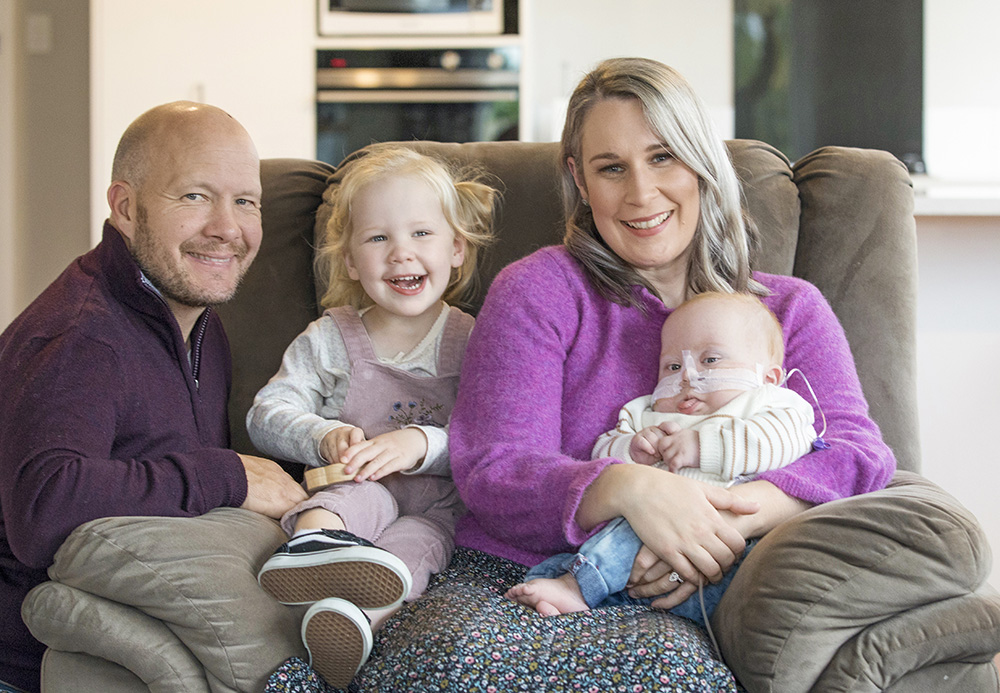Newborn baby girl Raureka Tumahai-Rauhihi was just three weeks old when she was gently lifted onto the Starship National Air Ambulance in an incubator and flown from Christchurch to Auckland for life-saving heart surgery.
Leaving her identical twin sister Waitaiki behind in the neonatal unit, where she was lovingly cared for by nurses, first-time mum Chantal joined her sick bub on the plane to Starship Children’s Hospital, praying both her girls would be OK.
“If Raureka didn’t have heart surgery immediately, she wouldn’t have made it,” says Chantal, 33. “But the surgeon warned my partner Josh and I there were risks. He told us to close our fists and that’s the size of your heart, so you can imagine how small a premature baby’s is to work on.”
Baby Raureka’s health challenges began in the womb, when she and Waitaiki, the elder of the two, were diagnosed with twin-to-twin transfusion syndrome. The condition means blood flows unequally between identical twins sharing the same placenta, with one taking most of the nutrients and oxygen.
“When I found out I was pregnant with twins, I almost swore at the sonographer,” laughs Chantal, an operations manager for Nga-i Tahu Pounamu. “We have a lot of twins in my extended family – our girls are the 11th set!”
Sixteen weeks into her pregnancy, Chantal was in hospital every week for check-ups, making sure the twins had enough fluid around them. It wasn’t picked up that Raureka had a heart condition until she was born at 36 weeks.
“I had an elected Caesarean and tried to push it out to 37 weeks, but I ran out of fluid, so they booked me in earlier,” recalls Chantal. “I thought the girls would only be in neonatal for a few days, then we’d go home and be a happy family.
“It wasn’t until I saw the babies in incubators and connected to wires that it hit me – we were on a long journey and I didn’t know it was going to go downhill.”
Waitaiki was born at around two kilos, while Raureka weighed just over 1.5kg. When she came out, the newborn needed oxygen to help her breathe and then the twins were rushed to the neonatal intensive care unit.
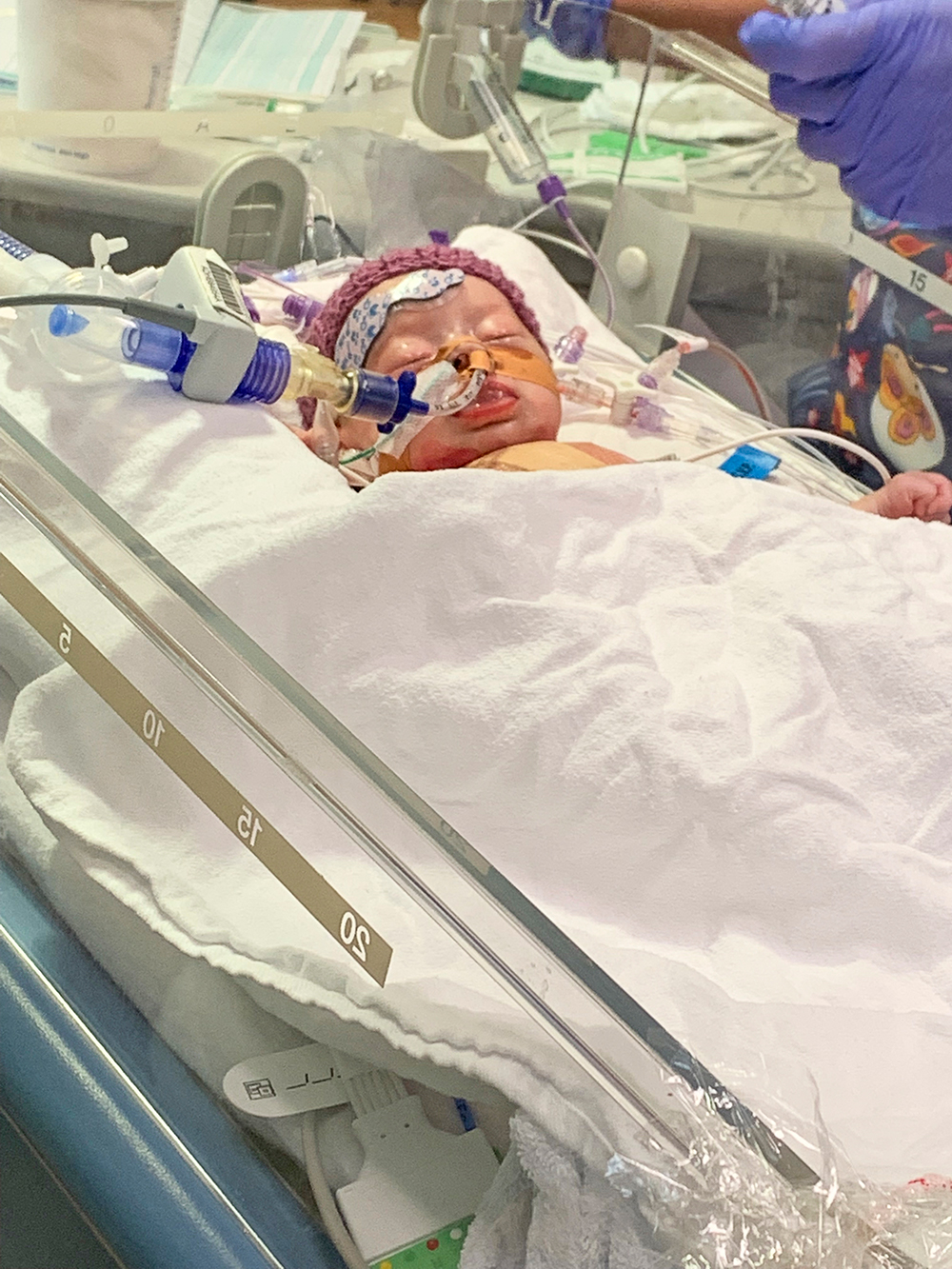
Little battler Raureka.
“That was at midday and I didn’t get to see or hold them until 9pm, which was really hard,” Chantal shares. “Seeing them for the first time, I just burst into tears. The nurse who’d been looking after them was so comforting.”
A week after the birth, Raureka had her first X-ray and her lungs appeared clear, but doctors saw a “spot of fog” they thought was an infection that could be treated with antibiotics.
By week three, Waitaiki was healthy and putting on weight, but Raureka required more intensive care. On 2 September, on her birthday, Chantal received a call to say her littlest girl needed to fly to Starship to be assessed and diagnosed by a cardiac specialist.
“It was a sad birthday,” recalls Chantal. “They believed she had total anomalous pulmonary venous drainage [TAPVD], but it couldn’t be diagnosed in Christchurch.”
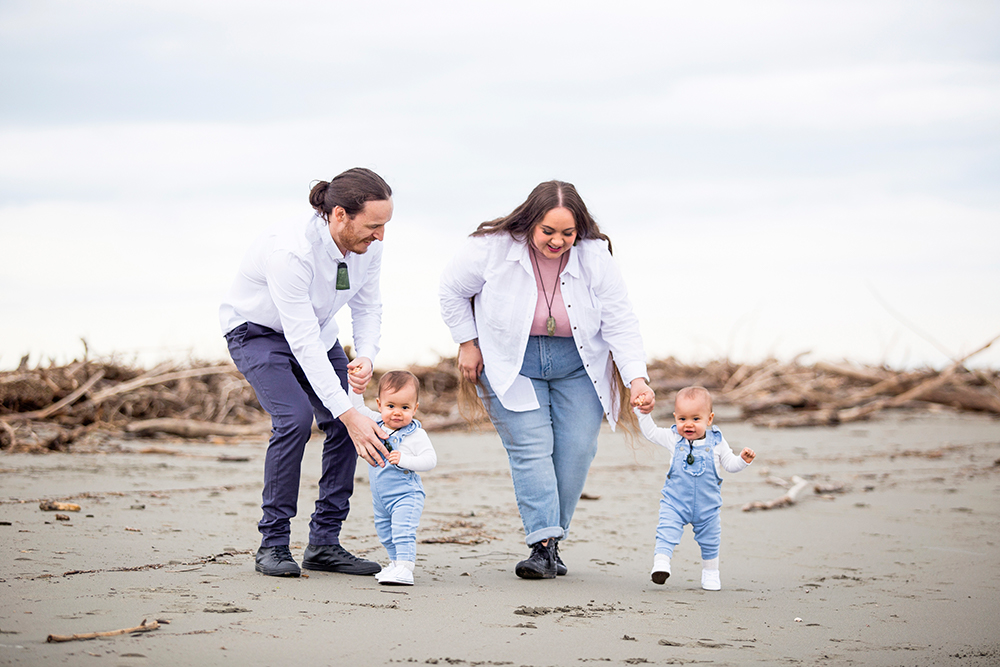
Raureka is fast catching up to twin Waitaiki (far left)
The next morning, Raureka’s condition wasn’t stable and she was too sick to fly, so the Starship National Air Ambulance team flew down that evening, taking Chantal and her bub to Auckland Airport, where an ambulance met them with a cardiac doctor and nurse.
Josh, 33, had arrived earlier that day and waited nervously at Ronald McDonald House.
“It was quite traumatic for him because when he last saw Raureka, she looked like she’d already gone,” tells Chantal. “But she travelled really well and got to Starship safely. They confirmed it was TAPVD straightaway.”
TAPVD is a condition in which all four chambers of the pulmonary veins are abnormally connected to the right atrium instead of the left atrium, meaning she needed an operation to survive. But because of her size, clinicians weren’t sure whether Raureka was strong enough.
“The next morning, doctors decided they needed to operate as soon as possible – and they did,” Chantal explains. “The surgeon was amazing, drawing us a diagram of her heart and the repairs he was going to do. Now we have it in Raureka’s memory box.”
Miraculously, the surgery was a success, and when Chantal and Josh visited their bub post-surgery, she was awake and looking at them. Her chest remained open with a little tissue covering her heart, which meant surgeons could immediately access it
if needed.
“Josh really wanted to look at it, but I couldn’t!” laughs the doting mum. “Fortunately, the next day, it was sewn up and, a week later, her stitches were taken out. Then Starship flew us back to Christchurch Hospital.”
When the parents were finally able to reunite their girls, it was the best feeling in the world. “The twins are thriving,” grins Chantal, adding the babies celebrated their first birthday on 12 August.
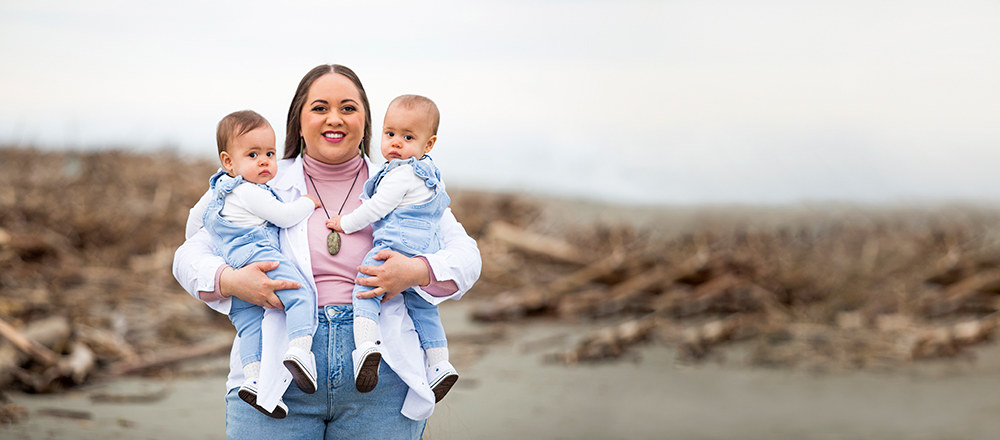
“Waitaki is reserved and shy, while Raureka is the outgoing daredevil. Her surgeon said she’s a success story and we’re very blessed they were there for us.”
How to help
It’s based in Auckland, but our national children’s hospital Starship is on call for kids across Aotearoa. With 60% of admissions from outside the greater Auckland area, the Starship National Air Ambulance flies every 48 hours to collect a child in need. For more info on this vital service or to donate, please visit Starship On Call.
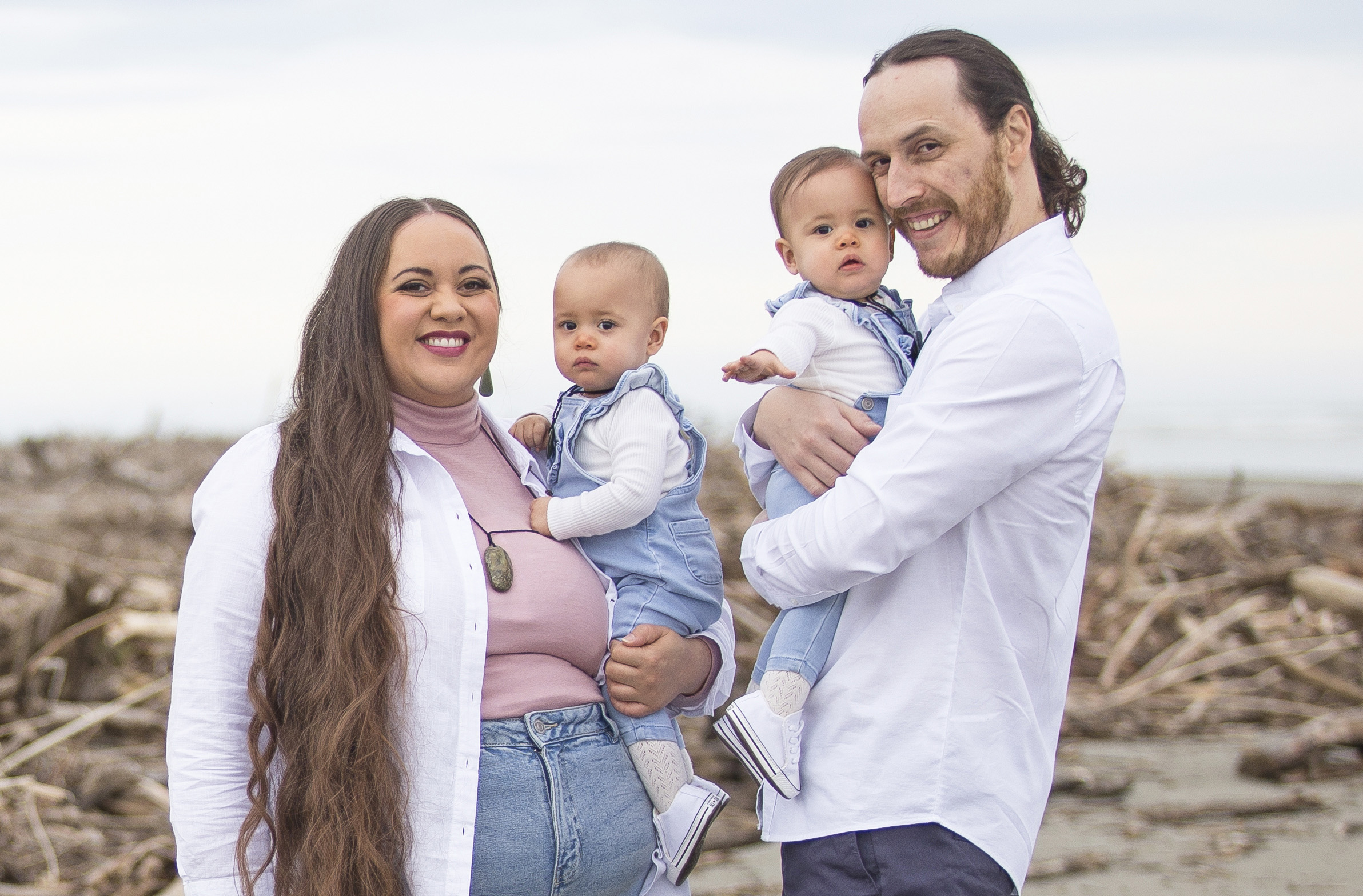
.jpg)
